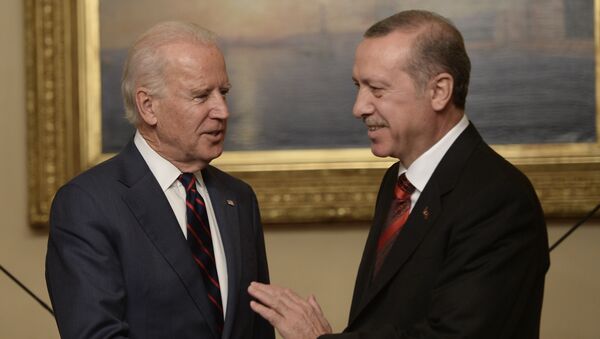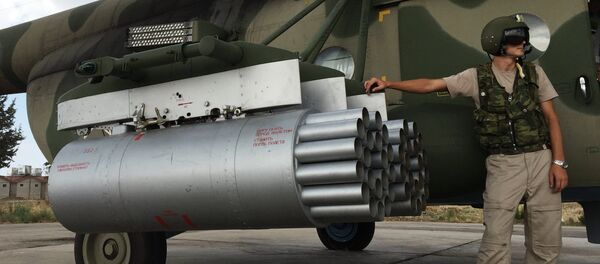"The United States is already working with predominantly Kurdish rebel factions east of the Euphrates River in northern Syria and with Iraqi forces along the Iraq-Syria border to try to strangle the Islamic State in Raqqah. But the United States needs a lot of assistance from Turkey west of the Euphrates to tie the noose."
"Turkey," Stratfor notes, "is prepared to commit ground troops to an operation in northern Syria – especially after last week's suicide bombing."
However, the think tank cautions, "the chief complication is Russia. Following the November downing of a Russian warplane by Turkish forces, Russia's air defense buildup in Syria, paired with a direct threat to shoot down any aerial targets that could threaten Russian aircraft in Syria, has complicated Turkey's military planning."
Meanwhile, the Kurdish People's Protection Units (YPG) militia groups operating in northern Syria have played a crucial role in hindering Daesh's oil trade through Turkey and have succeeded in disrupting the flow of vehicles, fighters, and weapons to the jihadists via the porous Turkish-Syrian border.
In fact, according to some experts, including Center for Middle East and Central Asian Studies director Semyon Bagdasarov, the Russian-supported Syrian Democratic Forces (an alliance of Kurdish, Arab, Assyrian and other militias operating in northern Syria) may very well push Daesh out of their capital in Raqqah, and even close the Syrian-Turkish border, before the year is out, and without any 'Turkish help'.
Anyway, back to Stratfor's analysis. "The United States," the think tank says, "which has established rules of engagement with Russia for the Syrian battlefield, has taken it upon itself to try to work out a similar understanding between Turkey and Russia and to get the battle plans in motion again."
As for the next leg of the Syrian peace negotiations, scheduled to be held in Geneva on January 25, the think tank argues that "on the Syria matter, Turkey plays a crucial role in bringing the rebel factions it sponsors to the table (while trying to keep Kurdish factions out of the negotiation altogether), and Turkey and Russia's frosty relationship only adds to the complications afflicting the Syrian negotiation."
Relations are frosty, but how can they be anything else, after Turkey downed a Russian bomber, over Syrian airspace, which was engaged in the fight against Daesh? Moreover, with Turkish officials making grand declarations that "no country has more to say on these peace talks than Turkey," while simultaneously engaging in operations against the very forces attempting to smash the terrorists, it's unclear how else Russia is supposed to react.
Ultimately, Stratfor suggests, Washington might "get Moscow's attention" and force it to the negotiating table with Ankara over Syria by compelling Turkey to "increase the size and frequency of naval rotations in the Black Sea," within the limits of the Montreux Convention on the Turkish Straits.
Recalling US Assistant Secretary of State for European and Eurasian Affairs Victoria Nuland's ongoing tour of Eastern Europe and Turkey, where she has pushed "security proposals to underscore the US security commitment to Central and Eastern Europe," Stratfor notes that the economic squeeze presently faced by Russia means that "Moscow would not take a larger NATO encroachment on these two fronts lightly."
"At the end of this week, Nuland will join US Vice President Joe Biden in Turkey and hold high-level talks with Turkish leaders. The United States could use this opportunity to try to bring Ankara back into dialogue with Russia over Syria. It could also use the occasion to feel out Turkey's position on NATO's Black Sea security. If Moscow feels its hostile relationship with Turkey has pushed Ankara too far toward its NATO allies, Russia could resume a dialogue with Turkey, making a compromise in Syria possible."
In other words, Stratfor seems to argue, Washington could force Moscow to compromise on Syria by threatening a buildup in the Black Sea. But with Turkey already demonstrating what such a 'compromise' would entail (i.e. attacks against Syrian Kurds and support for anti-Assad rebels), the only question the think tank should be asking itself is: How likely is Russia to abandon its regional ally for the sake of a flimsy verbal guarantee from a Western military alliance which has broken almost every promise it has ever made to Moscow?





